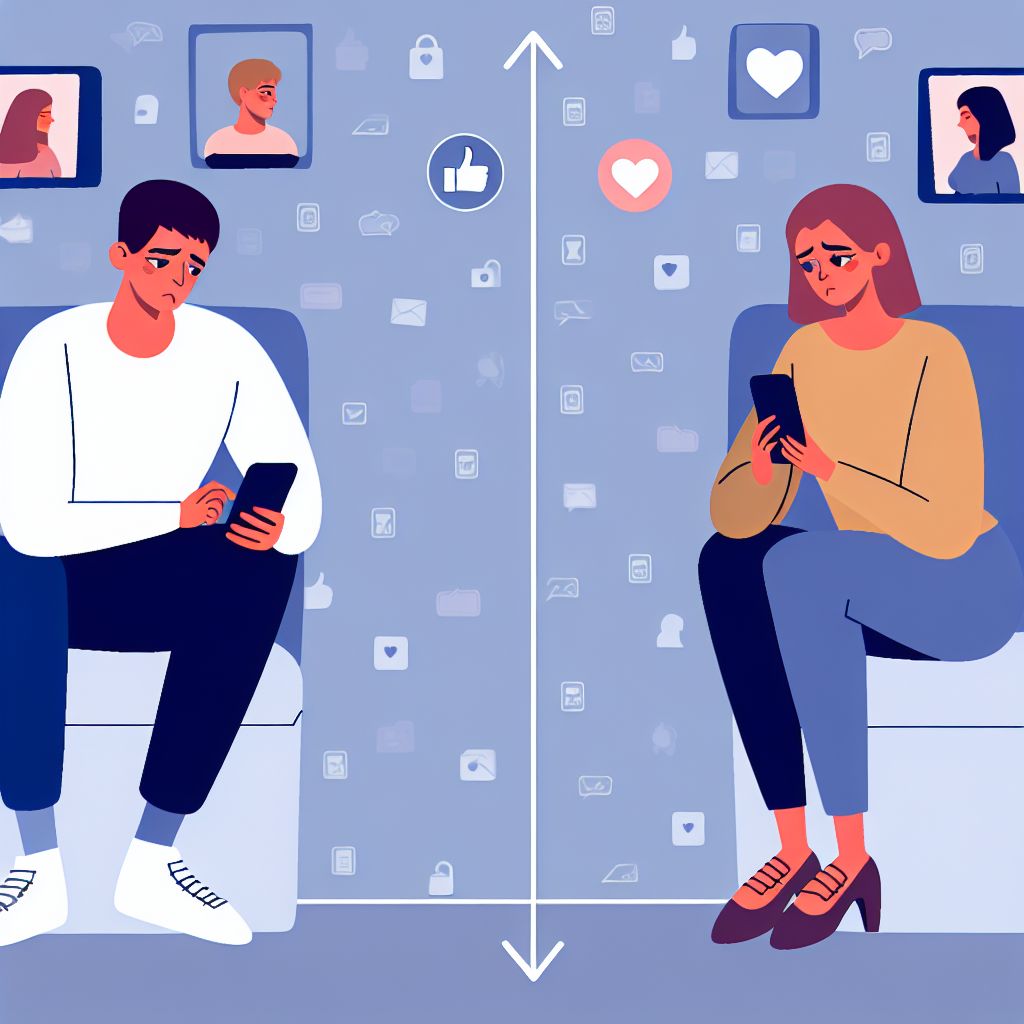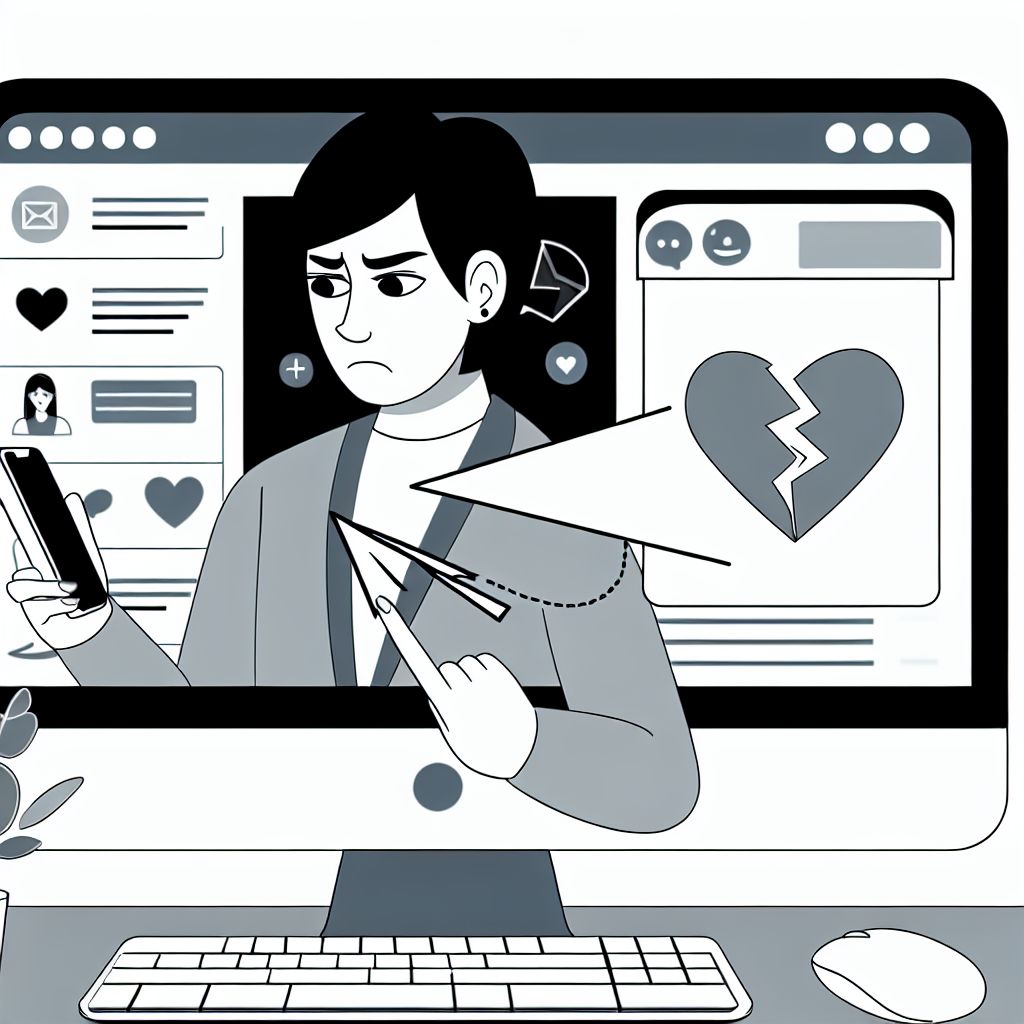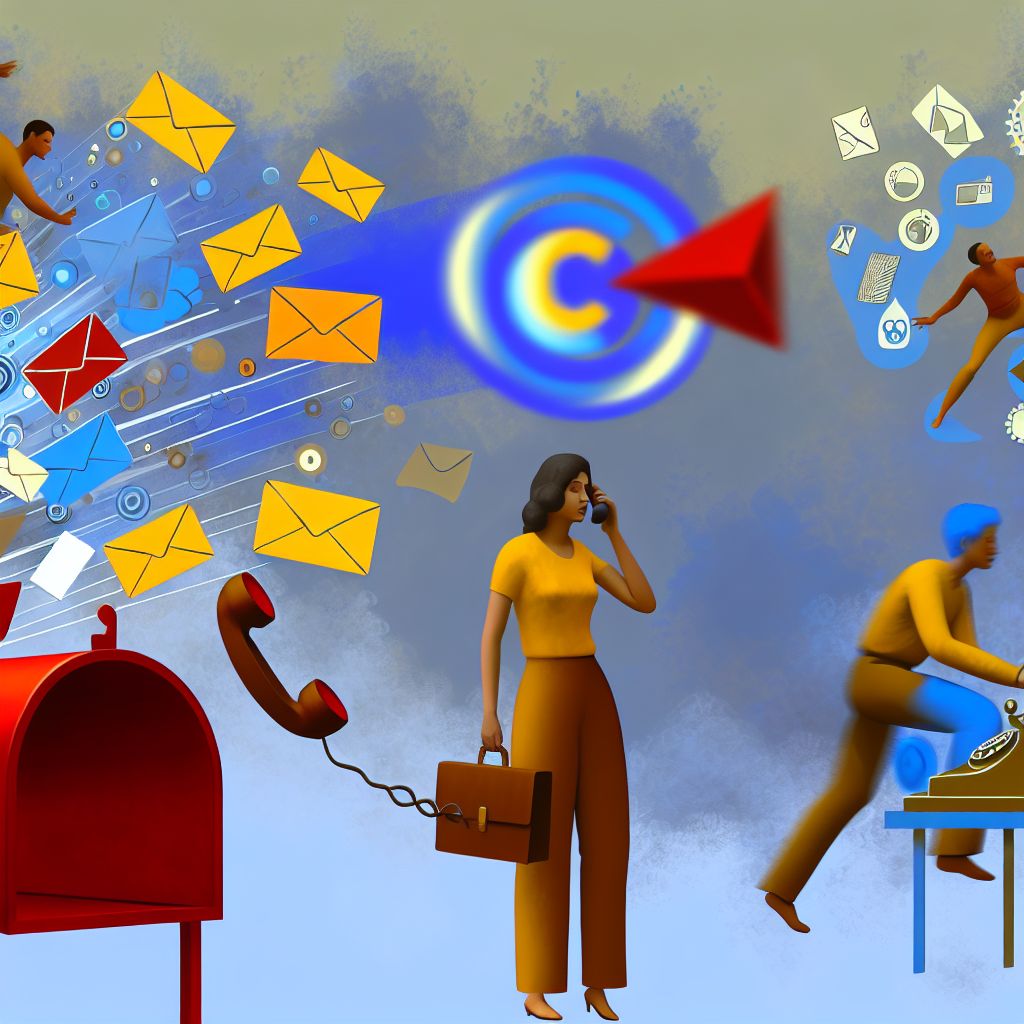Navigating Ex-Relationships and Privacy on Social Media: A Guide to Proper Etiquette
When it comes to social media etiquette, one of the trickiest aspects to navigate is how to handle ex-relationships and maintain your privacy. In the digital age, where everyone's lives are on display, it can be challenging to draw boundaries and protect your personal space. Whether you're newly single or have been separated for a while, it's important to approach social media with caution and considerate behavior.
First and foremost, it's crucial to respect your ex-partner's privacy and feelings.Posting negative or derogatory comments about them can not only harm their reputation but also reflect poorly on your own character. It's essential to take the high road and refrain from airing your grievances online. Instead, focus on healing and moving forward in a positive manner.
Another aspect of social media etiquette to consider is how to handle mutual friends and acquaintances.While it's understandable to want to stay connected with people you care about, it's essential to be mindful of the potential discomfort your posts may cause. Before sharing anything related to your breakup or personal life, consider how it may impact those who are connected to both you and your ex. It's crucial to maintain a respectful and considerate approach to avoid unnecessary drama or hurt feelings.
The Impact of Sharing Personal Content on Social Media

In today's digital age, social media has become an integral part of our lives. It allows us to connect with others, share our thoughts and experiences, and stay updated on the latest news and trends. However, the ease of sharing personal content on social media also comes with its own set of challenges and potential consequences.
One of the biggest impacts of sharing personal content on social media is the potential loss of privacy. When we post photos, videos, or personal updates, we often do so with the intention of sharing these moments with our friends and followers. However, it's important to remember that social media platforms are not completely private. Even with privacy settings in place, there is always a risk of our personal content being seen by unintended audiences. This can lead to unwanted attention, stalking, or even identity theft.
Another impact of sharing personal content on social media is the potential damage to our reputation. The internet has a long memory, and once something is posted online, it can be difficult to remove or erase completely. Inappropriate or controversial content can come back to haunt us in the future, affecting our personal and professional relationships. It's important to think twice before sharing personal content that could be seen as offensive, disrespectful, or inappropriate.
Sharing personal content on social media can also have a negative impact on our mental health. Constantly comparing ourselves to others' highlight reels and curated online personas can lead to feelings of inadequacy, low self-esteem, and even depression. It's important to remember that what we see on social media is often a carefully crafted version of reality, and not a true reflection of someone's life.
On the flip side, sharing personal content on social media can also have positive impacts. It allows us to stay connected with friends and family, celebrate milestones and achievements, and share our passions and interests with like-minded individuals. It can foster a sense of community and support, and provide a platform for creativity and self-expression.
Overall, the impact of sharing personal content on social media is a double-edged sword. While it can bring us closer together and provide a platform for self-expression, it also comes with risks to our privacy, reputation, and mental health. It's important to be mindful of what we share and who we share it with, and to use social media in a way that enhances our lives rather than detracts from it.
Is it safe to share your personal information on social media?
Sharing personal information on social media can be convenient and fun, but it also comes with risks. Here are a few things to consider before sharing your personal information:
- Privacy concerns: When you share personal information on social media, it becomes accessible to a wide audience. This can include friends, family, acquaintances, and even strangers. Before sharing personal information, think about who might have access to it and how it could potentially be used.
- Identity theft: Personal information such as your full name, address, phone number, and date of birth can be valuable to identity thieves. They can use this information to steal your identity and commit fraud. Be cautious about sharing such sensitive information on social media.
- Cyberstalking: Sharing personal information on social media can make you vulnerable to cyberstalkers. They may use this information to track your activities, harass you, or invade your privacy. Consider keeping personal details private to protect yourself from potential harm.
- Location sharing: Some social media platforms allow you to share your current location. While this can be useful for connecting with friends or finding local events, it can also give away your whereabouts to people you may not want to share it with. Use caution when enabling location sharing features.
- Data mining: Social media platforms often collect and analyze user data for advertising purposes. By sharing personal information, you may unknowingly contribute to this data mining process. Be aware of the privacy policies of the social media platforms you use and consider adjusting your privacy settings accordingly.
Overall, it's important to be mindful of the personal information you share on social media. While it can be tempting to share everything about your life, it's crucial to prioritize your privacy and security. Think twice before sharing sensitive information and regularly review your privacy settings to ensure you have control over who can access your personal data.
Why do people share personal stuff on social media?
Sharing personal information on social media has become increasingly common in today's digital age. There are several reasons why people choose to share personal stuff on social media:
|
1. Connection and validation: Sharing personal experiences, achievements, and milestones on social media allows individuals to connect with friends, family, and acquaintances. It provides a sense of validation and affirmation from others, as likes, comments, and shares can boost self-esteem and provide a feeling of acceptance. |
|
2. Building an online identity: For some individuals, sharing personal information on social media is a way to create and curate their online identity. By sharing personal stories, interests, and hobbies, they can shape how others perceive them and create a digital persona that aligns with their desired image. |
|
3. Seeking advice and support: Social media platforms provide a vast network of users who can offer advice, support, and empathy. By sharing personal challenges, problems, or dilemmas, people can seek guidance and comfort from their online communities. |
|
4. Documenting memories: Sharing personal photos and experiences on social media allows individuals to create a digital archive of their memories. It provides an easy way to store and revisit important moments in their lives, while also sharing them with others. |
|
5. Influencer culture and social media trends: The rise of influencer culture and social media trends has also influenced people's behavior when it comes to sharing personal stuff. Many individuals feel compelled to participate in challenges, trends, or viral movements, which often involve sharing personal stories or experiences. |
While sharing personal stuff on social media can have its benefits, it's important to consider the potential risks and consequences. Privacy settings, thoughtful content curation, and being mindful of the audience can help maintain a healthy balance between sharing personal information and protecting one's privacy.
Social Media Boundaries with Ex-Partners

When it comes to navigating relationships on social media, one area that can be particularly tricky is how to handle connections with ex-partners. It's important to establish clear boundaries to maintain your privacy and emotional well-being. Here are some guidelines to consider:
1. Unfriend or unfollow:If you're no longer on good terms with your ex-partner or find that seeing their posts triggers negative emotions, it may be best to unfriend or unfollow them on social media. This can help create some distance and prevent unnecessary pain.
2. Consider mutual friends:If you and your ex-partner have mutual friends on social media, it's important to think about how your interactions with them might affect your ex. Avoid posting anything that could be seen as trying to make your ex jealous or seeking attention.
3. Think before you post:Before sharing anything related to your ex-partner, ask yourself if it's necessary and consider how it might impact both of you. Sharing personal details or airing grievances publicly can create unnecessary drama and potentially damage future relationships.
4. Be mindful of tagging:Avoid tagging your ex-partner in posts or photos unless it's absolutely necessary. Tagging them could lead to awkward situations and potentially make it harder for both of you to move on.
5. Respect their privacy:Just as you would like your privacy respected, it's important to extend the same courtesy to your ex-partner. Avoid sharing or discussing personal information about them without their consent.
6. Limit contact:If you're still healing from the breakup, it may be best to limit or avoid contact with your ex-partner on social media altogether. This can help create space for personal growth and prevent reopening old wounds.
7. Keep emotions in check:It's natural to feel a mix of emotions when navigating connections with an ex-partner on social media. However, it's important to keep your emotions in check and avoid engaging in heated arguments or passive-aggressive behavior online.
8. Seek support:If you're finding it challenging to establish healthy boundaries with your ex-partner on social media, consider seeking support from friends, family, or a therapist. They can provide guidance and help you navigate this sensitive situation.
Remember, everyone's situation is unique, and what works for one person may not work for another. Trust your instincts and do what feels right for you when it comes to setting social media boundaries with your ex-partner.
What are social media boundaries in relationships examples?
When it comes to navigating relationships on social media, setting boundaries can be crucial in maintaining a healthy and respectful dynamic. Here are some examples of social media boundaries to consider:
- Privacy settings:Agreeing on the level of privacy you both feel comfortable with, such as whether to make your relationship status public or keeping certain posts visible to only close friends.
- Tagging and mentioning:Discussing how and when to tag or mention each other in posts, ensuring that both partners are comfortable with being associated with specific content.
- Posting about arguments or disagreements:Agreeing not to publicly post about personal arguments or disagreements to maintain privacy and avoid airing private matters to a wider audience.
- Interacting with exes:Setting boundaries for interacting with ex-partners or former romantic interests, such as unfollowing or blocking them to avoid any potential conflicts or misunderstandings.
- Sharing personal information:Discussing what type of personal information is acceptable to share online, such as addresses, phone numbers, or financial details, in order to protect each other's privacy and security.
- Discussing social media activities:Being open and transparent about your social media activities, discussing any concerns or issues that may arise, and addressing them in a respectful and understanding manner.
- Respecting each other's online presence:Recognizing that each partner has their own online presence and respecting their individuality by not invading their personal space or monitoring their online activities excessively.
Setting social media boundaries in relationships can help foster trust, understanding, and respect between partners, ensuring a healthy balance between online and offline interactions.
Is it disrespectful to talk to your ex while in a relationship?
When it comes to communicating with an ex while in a relationship, the answer isn't always black and white. While some people may view it as disrespectful, others may see it as harmless or even necessary, depending on the circumstances. Ultimately, the appropriateness of talking to an ex while in a relationship depends on the level of trust, transparency, and communication between partners.
Honesty and openness are essential in any relationship, and this extends to conversations with ex-partners. If both partners are comfortable and secure in their relationship, discussing past relationships and maintaining a platonic friendship with an ex may not be seen as disrespectful. However, it's important to establish boundaries and ensure that the current partner feels valued and secure.
On the other hand, if talking to an ex becomes a source of tension, jealousy, or insecurity in the current relationship, it may be considered disrespectful. In such cases, it's crucial to have open and honest conversations with the current partner to address any concerns or insecurities. Building trust and understanding is key to maintaining a healthy and respectful relationship.
Additionally, it's important to consider the intentions behind the communication with an ex. If the purpose of the conversation is to rekindle romantic feelings or keep secrets from the current partner, it is likely to be seen as disrespectful and potentially damaging to the relationship.
| Considerations | Respectful | Disrespectful |
|---|---|---|
| Open communication | Discussing past relationships in a transparent and honest manner | Keeping secrets or withholding information about communication with an ex |
| Establishing boundaries | Setting clear boundaries with the ex to ensure the current partner feels valued and secure | Ignoring or dismissing the concerns and insecurities of the current partner |
| Intentions | Maintaining a platonic friendship or discussing shared interests with the ex | Attempting to rekindle romantic feelings or hiding intentions from the current partner |
In conclusion, whether talking to an ex while in a relationship is disrespectful or not depends on various factors such as trust, transparency, and the intentions behind the communication. It's essential for both partners to have open and honest conversations about their comfort levels and establish clear boundaries to ensure a respectful and healthy relationship.
Attention-Seeking Behavior on Social Platforms After Breakups

After a breakup, it is common for individuals to experience a range of emotions, including sadness, anger, and confusion. Some people may turn to social media as a way to seek attention and validation from their peers. While this behavior may be understandable, it is important to approach social platforms with caution and respect for oneself and others.
Engaging in attention-seeking behavior on social media after a breakup can have negative consequences. It can prolong the healing process and prevent individuals from moving on. Additionally, it can lead to unnecessary drama and conflict, especially if the ex-partner or mutual friends see the posts.
Instead of seeking attention and validation online, it is important to focus on self-care and healing. This can involve spending time with loved ones, engaging in hobbies, or seeking professional support. Taking a break from social media can also be beneficial, as it allows individuals to disconnect from the virtual world and focus on their own well-being.
If individuals feel the need to express their emotions or seek support, it can be helpful to do so privately or in a more controlled environment. This can include talking to close friends or family members, joining support groups, or even seeking therapy. These outlets provide a safe space to share feelings without the risk of public judgment or backlash.
When using social media after a breakup, it is important to respect privacy. This means refraining from posting personal details or airing grievances about the ex-partner. It is also important to be mindful of the impact of one's posts on others, especially mutual friends who may feel caught in the middle of the breakup.
Overall, attention-seeking behavior on social platforms after a breakup can be harmful and counterproductive. It is important to prioritize self-care, seek support in appropriate ways, and respect privacy. By doing so, individuals can navigate the post-breakup period in a healthier and more constructive manner.
Why do I crave attention after a breakup?
Breakups can be emotionally challenging experiences, leaving individuals feeling vulnerable and in need of support. One common response to a breakup is a craving for attention from others. This desire for attention can stem from a variety of psychological factors.
Firstly, after a breakup, individuals may experience a decrease in self-esteem and self-worth. The end of a relationship can leave them feeling rejected and unloved. Seeking attention from others can provide a temporary boost to their self-esteem and validate their worthiness of love and affection.
Additionally, attention-seeking behavior after a breakup can be a way to distract oneself from the pain and sadness of the end of a relationship. By seeking attention and validation from others, individuals can momentarily escape the negative emotions associated with the breakup and focus on positive interactions instead.
Furthermore, the desire for attention can also be driven by a fear of being alone or a fear of missing out. After a breakup, individuals may worry about being alone and not having someone to share their life with. Seeking attention from others can alleviate these fears and provide a sense of companionship and connection.
It is important to note, however, that seeking attention after a breakup is not inherently negative. It is a natural response to a challenging life event. However, it is essential to find healthy ways to cope and heal from the breakup, rather than relying solely on external validation and attention.
Ultimately, the craving for attention after a breakup stems from the need for emotional support, validation, and a sense of connection. By understanding and addressing these underlying needs, individuals can navigate the post-breakup period in a healthier and more fulfilling way.
Why is he trying to get my attention after breakup?
Breakups can be difficult and emotional, and it's not uncommon for someone to try to get their ex's attention after the relationship has ended. There can be a variety of reasons why your ex is trying to get your attention, and it's important to approach the situation with caution and self-awareness.
One possible reason is that your ex may be feeling lonely or nostalgic after the breakup. They may be trying to reach out to you in hopes of rekindling the relationship or seeking comfort and familiarity. However, it's important to remember that giving them attention may only prolong the healing process for both parties involved.
Another possibility is that your ex may be trying to elicit a reaction from you. They may be testing the waters to see if you still have feelings for them or if you're still interested in maintaining some sort of connection. In this case, it's important to set boundaries and communicate your feelings clearly, so as not to give them false hope or lead them on.
It's also possible that your ex is trying to get your attention for more negative reasons. They may be seeking validation or trying to make you jealous by showing off their own social life or new romantic interests. In this case, it's best to focus on yourself and your own healing process, and not give in to their attempts to get a reaction from you.
Ultimately, it's important to prioritize your own emotional well-being after a breakup. If your ex's attempts to get your attention are causing you distress or preventing you from moving on, it may be best to block or unfollow them on social media and limit your contact with them. Surround yourself with supportive friends and family, and focus on self-care and personal growth.
| Key points: |
|---|
| - Your ex may be trying to get your attention out of loneliness or nostalgia |
| - They may be testing the waters to see if you still have feelings for them |
| - Your ex may be seeking validation or trying to make you jealous |
| - Prioritize your own well-being and set boundaries if needed |
Is posting on social media bad after a breakup?
Breakups can be emotionally challenging, and navigating social media during this time can add another layer of complexity. While there is no definitive answer to whether posting on social media after a breakup is bad, it is essential to consider the potential consequences and impact it may have on both parties involved.
Posting on social media immediately after a breakup can be seen as an attempt to seek attention or validation from others. It may come across as an act of revenge or an attempt to make the other person jealous. Such actions can prolong the healing process and cause unnecessary drama.
On the other hand, sharing updates or photos that reflect positive experiences and personal growth can be empowering and uplifting. It can demonstrate resilience and the ability to move forward, which can be beneficial for one's self-esteem and emotional well-being.
It is important to be mindful of the content shared on social media after a breakup. Venting or sharing intimate details of the relationship can be seen as disrespectful to the other person's privacy. It can also create tension and make it harder to maintain a cordial relationship, especially if both parties have mutual friends or connections on social media.
Before posting anything, it is crucial to take time to reflect on one's emotions and consider the potential consequences. It may be helpful to seek support from friends, family, or a therapist to process the breakup before engaging on social media. Taking a break from social media altogether might also be beneficial in order to focus on self-care and healing.
Ultimately, the decision to post or not to post after a breakup is a personal one. It is important to prioritize one's well-being and consider how social media activity may impact the healing process. When in doubt, it is often better to err on the side of caution and avoid posting anything that may have negative repercussions.
Respecting Privacy and Navigating Social Media Post-Breakup

Breakups can be tough, and navigating social media after a breakup can be even tougher. It's important to respect privacy and boundaries during this time to avoid any unnecessary pain or discomfort. Here are some tips for navigating social media post-breakup:
- Take a break: It's okay to take a break from social media after a breakup. This can give you time to heal and focus on yourself without constantly being reminded of your ex. Consider temporarily deactivating your accounts or limiting your usage.
- Unfollow or mute your ex: If seeing your ex's posts or updates is too painful, unfollow or mute them on social media. This will help you create some distance and give you the space you need to move on.
- Think before you post: Be mindful of what you post on social media during this sensitive time. Avoid posting anything that could be seen as a direct jab at your ex or anything that may be taken out of context. Remember, social media is a public platform, and your posts can have consequences.
- Respect their privacy: Just as you would want your privacy respected, respect your ex's privacy as well. Avoid sharing personal information or details about your relationship without their consent. It's important to be considerate and avoid causing any unnecessary harm.
- Reach out privately: If you need to communicate with your ex about shared assets or other important matters, do so privately. Avoid airing your grievances or discussing personal matters in public forums. Keep the conversation respectful and focused on the issue at hand.
- Seek support offline: While it's natural to seek support from friends and family during a breakup, try to avoid discussing the details of your breakup on social media. Instead, reach out to trusted individuals in person or through private conversations. This can help protect your privacy and keep the focus on healing.
Remember, navigating social media post-breakup requires respect, empathy, and discretion. By following these guidelines, you can protect your privacy and emotional well-being while moving forward with grace.
What not to do on social media after a breakup?
Going through a breakup can be a challenging and emotional time, and it's important to be mindful of your actions, especially on social media. Here are some things you should avoid doing on social media after a breakup:
1. Don't air your dirty laundry:It may be tempting to vent about your ex or the breakup on social media, but it's best to refrain from doing so. Sharing intimate details or publicly criticizing your ex will only lead to more drama and can damage your reputation.
2. Avoid stalking your ex:It's natural to be curious about what your ex is up to, but constantly checking their social media profiles can hinder your healing process. Unfollow or mute them if necessary to resist the temptation of keeping tabs on their every move.
3. Don't use social media as a tool for revenge:Posting provocative pictures or trying to make your ex jealous through social media is not a healthy way to cope with a breakup. It may provide temporary satisfaction, but in the long run, it will only prolong your healing process.
4. Avoid posting cryptic or passive-aggressive messages:Posting cryptic or passive-aggressive messages that are directed towards your ex will only create confusion and unnecessary drama. It's better to communicate directly with your ex if you have something important to say.
5. Don't rush into a new relationship on social media:It's important to take time for yourself and heal before jumping into a new relationship. Rushing into a new relationship on social media shortly after a breakup can give the impression that you are trying to replace your ex or seeking validation.
6. Avoid using social media as a constant reminder of your ex:Constantly scrolling through old pictures or posts that remind you of your ex can make it harder for you to move on. Consider taking a break from social media or unfollowing mutual friends to give yourself some space to heal.
7. Don't engage in online arguments or fights:Engaging in online arguments or fights with your ex or their friends will only prolong the pain and make the situation worse. It's best to disengage and focus on your own healing process.
Remember, social media can be a powerful tool, but it's important to use it responsibly and mindfully, especially during a sensitive time like a breakup. Take care of yourself and prioritize your healing above all else.
Does taking a break from social media help after a breakup?
Breaking up with someone can be a challenging and emotional time, and it's natural to seek ways to heal and move on. One strategy that many people consider is taking a break from social media. But does it actually help?
While there is no one-size-fits-all answer to this question, taking a break from social media can have some benefits for individuals going through a breakup.
Firstly, social media can be a constant reminder of the past relationship. Seeing posts, photos, and updates from your ex-partner can trigger painful memories and make it difficult to move on. By taking a break from social media, you can create some distance and give yourself the space to heal without these constant reminders.
Secondly, social media can also fuel feelings of jealousy and insecurity. Seeing your ex-partner moving on or appearing happy without you can be incredibly challenging and can hinder your own healing process. By taking a break from social media, you can avoid these potentially damaging comparisons and focus on your own well-being.
Thirdly, social media can sometimes be a platform for negative interactions and drama. After a breakup, emotions can run high, and engaging in arguments or confrontations online can be detrimental to your healing process. Taking a break from social media can help you avoid these negative interactions and maintain a healthier emotional state.
However, it's important to note that while taking a break from social media can have its benefits, it may not be the answer for everyone. Some individuals find solace and support in online communities, while others may find it helpful to maintain connections with friends and family through social media during a difficult time.
If you do decide to take a break from social media after a breakup, it's important to consider other ways to support your healing process. This may include seeking support from friends and family, engaging in self-care activities, and seeking professional help if needed.
In conclusion, taking a break from social media can be a helpful strategy for individuals going through a breakup. It can create distance from painful reminders, prevent negative comparisons, and avoid potentially damaging interactions. However, it's important to consider individual needs and seek other forms of support to ensure a healthy healing process.











